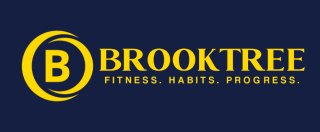Why Fiber is Essential for Health and How to Incorporate It
Fiber might not be the flashiest topic in health and wellness, but its importance cannot be overstated. From maintaining a healthy gut microbiome to reducing the risk of chronic diseases, fiber plays a central role in overall well-being. Let’s explore what fiber is, why it matters, and how you can include it in your diet effectively.
What Is Fiber?
Fiber is a type of carbohydrate that your body cannot digest. It comes in two forms:
- Soluble Fiber: Dissolves in water, forming a gel-like substance that slows digestion and helps manage blood sugar and cholesterol levels.
- Insoluble Fiber: Does not dissolve in water and adds bulk to stool, aiding in digestion and preventing constipation.
Both types are critical to maintaining a healthy digestive system and supporting metabolic health.

Why Fiber Matters
-
Supports Gut Health
Fiber feeds the beneficial bacteria in your gut, which thrive on fermentation processes in the large intestine. This symbiotic relationship fosters a healthy gut microbiome, essential for digestion, nutrient absorption, and immune function. -
Improves Satiety and Aids Weight Management
High-fiber foods are filling, reducing hunger and overall calorie intake. Fiber also slows digestion, leading to a steady release of energy and fewer blood sugar spikes, which is particularly helpful for those managing diabetes. -
Reduces the Risk of Chronic Diseases
Diets rich in fiber are linked to a lower risk of colorectal cancer, heart disease, and Type 2 diabetes. Fiber helps lower cholesterol levels and reduces exposure to harmful toxins by speeding up digestion. -
Prevents Digestive Disorders
Fiber reduces the risk of constipation and conditions like diverticulosis, which can lead to serious complications if left unmanaged.
How Much Fiber Do You Need?
The daily recommended intake varies by age and gender:
- Women: 25–30 grams
- Men: 30–40 grams
However, most Americans fall far short of these recommendations.
Sources of Fiber
You can easily meet your daily fiber needs by incorporating a variety of plant-based foods into your diet, such as:
- Fruits: Apples, berries, oranges
- Vegetables: Broccoli, carrots, spinach
- Whole Grains: Oats, quinoa, brown rice
- Legumes: Lentils, black beans, chickpeas
- Nuts and Seeds: Almonds, chia seeds, flaxseeds
For example, a cup of cooked lentils provides 15 grams of fiber, while an apple offers about 3–4 grams.
Tips for Adding Fiber to Your Diet
- Start Slowly: If your diet is currently low in fiber, increase your intake gradually to avoid digestive discomfort like gas or bloating.
- Stay Hydrated: Fiber absorbs water, so drinking plenty of fluids is essential for preventing constipation.
- Diversify Your Plate: Include a mix of fiber-rich foods at every meal to ensure you’re getting both soluble and insoluble fiber.
- Opt for Whole Foods Over Supplements: While fiber supplements can help, it’s better to get fiber from natural, nutrient-dense sources.

The Bottom Line
Fiber is an indispensable part of a healthy diet. It keeps your gut happy, helps manage weight, reduces disease risk, and promotes overall health. Whether you're just starting to focus on nutrition or looking to optimize your current routine, prioritizing fiber can be transformative.
At Brooktree Consulting, we specialize in helping clients adopt sustainable, personalized nutrition and lifestyle habits. Whether you’re looking to improve your gut health, lose weight, or achieve your wellness goals, we’re here to guide you every step of the way. Schedule a free discovery call today and take the first step toward a healthier, happier you.
Click here to learn more about the Lifestyle Coaching program and get started!






Responses